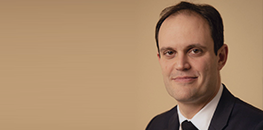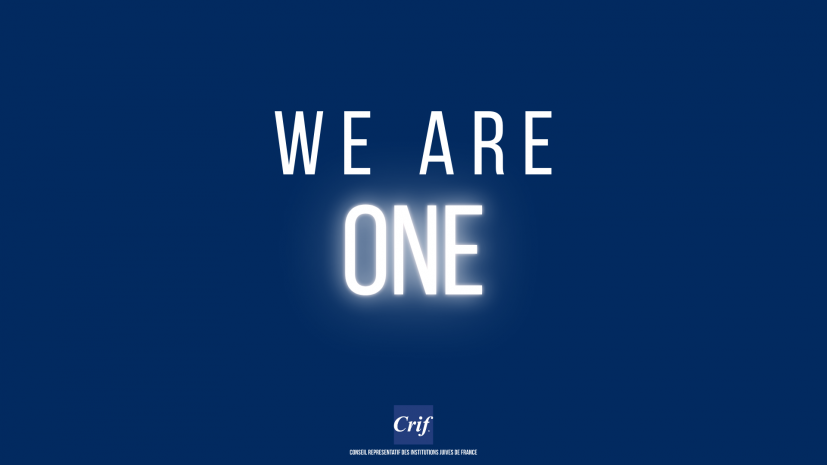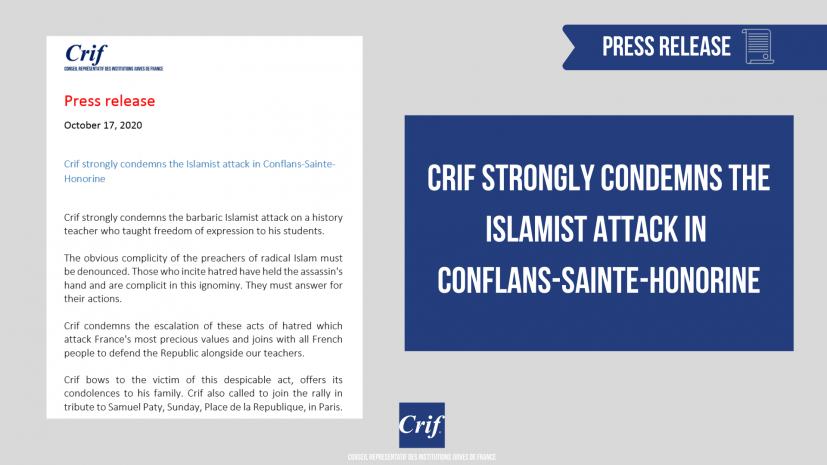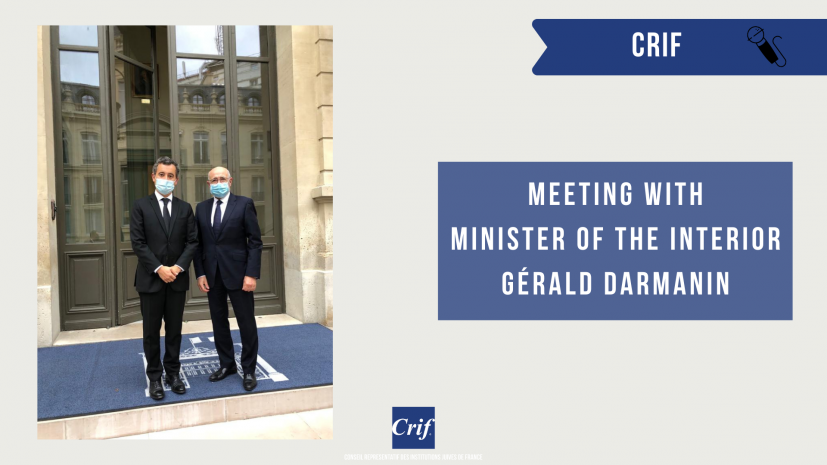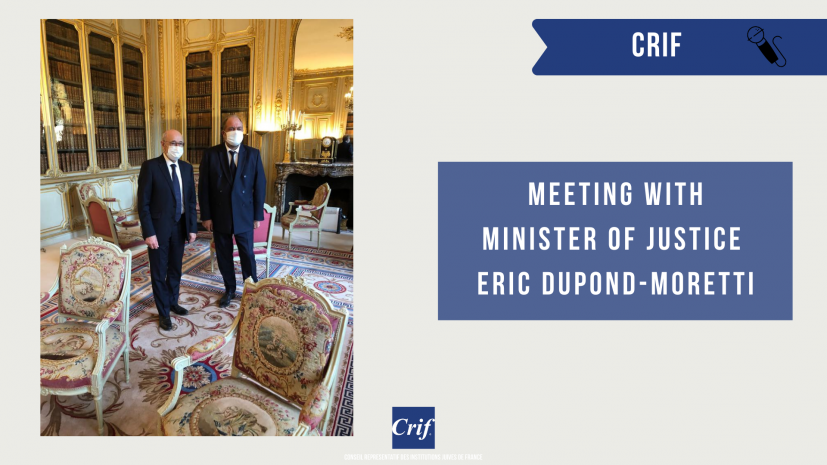News feed
Crif - We are one
|
27 October 2020
Crif - Meeting with Minister of the Interior Gérald Darmanin
|
08 October 2020
Crif - Meeting with Minister of Justice Eric Dupond-Moretti
|
08 October 2020
Crif/Rosh Hashana - 5781: a year of kindness and solidarity
|
07 October 2020


